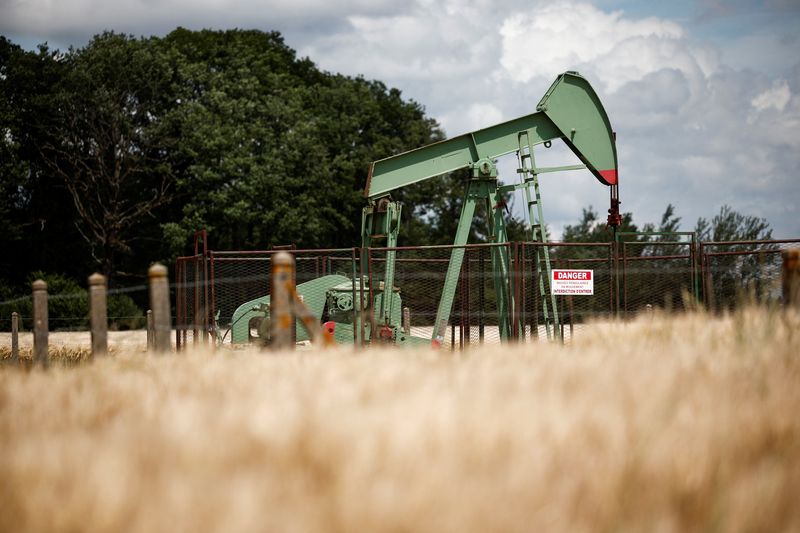Oil prices regain some ground after 7% loss last week
By Ahmad Ghaddar
LONDON (Reuters) -Oil prices rose on Monday, recouping some of last week's more than 7% decline on worries about demand in China, the world's top oil importer, and easing concerns about potential supply disruptions in the Middle East.
Brent crude futures were up $1.16, or 1.6%, to $74.22 a barrel at 1036 GMT. U.S. West Texas Intermediate crude futures were up $1.32, or 1.9%, to $70.54 a barrel.
Brent settled down more than 7% last week, while WTI lost around 8%. Those were the contracts' biggest weekly declines since Sept. 2, due to slowing economic growth in China and falling risk premiums in the Middle East.
China on Monday cut benchmark lending rates as anticipated, part of a broader package of stimulus measures to revive the economy.
Data on Friday showed that China's economy grew at the slowest pace since early 2023 in the third quarter, fuelling growing concerns about oil demand.
Saudi Aramco (TADAWUL:2222 )'s CEO told an energy conference in Singapore on Monday that he was still "fairly bullish" on China's oil demand in light of stepped up policy support aimed at boosting growth, and because of rising demand for jet fuel and liquid-to-chemicals.
"Geopolitical tensions in the Middle East and the positive oil demand comments from the CEO of Aramco are likely supporting oil prices," UBS analyst Giovanni Staunovo said.
The U.S. Energy Information Administration said on Friday weekly oilfield production rose by 100,000 barrels per day (bpd) to a record 13.5 million bpd during the week ended Oct. 11.
Meanwhile, U.S. envoy Amos Hochstein will hold talks with Lebanese officials in Beirut on Monday on conditions for a ceasefire between Israel and Hezbollah, two sources told Reuters, as Israel expanded its air campaign on the group's financial assets overnight.
Source: Investing.com
